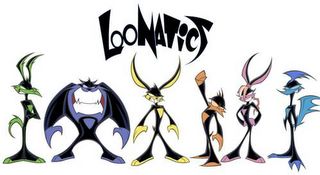Overtly? Hopefully not. Surreptitiously? Yes.
The difference between Racism and White Privilege is that the former is something I do to other people, the latter is all of the things given to me that I accept - or more accurately: things done for my benefit which I have not earned. This assiduous advantage is exceedingly difficult perceive in ones own life – it takes an accidental epiphany. Like the ship at the beginning of The Hitchhikers Guide to the Galaxy; it’s only invisible because you haven’t noticed it yet.
1. If I should need to move, I can be pretty sure of renting or purchasing housing in an area that I can afford and in which I would want to live.
2. I can be pretty sure that my neighbors in such a location will be neutral or pleasant to me.
3. I can go shopping alone most of the time, pretty well assured that I will not be followed or harassed.
4. I can turn on the television or open to the front page of the paper and see people of my race widely represented.
5. When I am told about our national heritage or about "civilization", I am shown that people of my color made it what it is.
6. I can be sure that my children will be given curricular materials that testify to the existence of their race.
7. If I want to, I can be pretty sure of finding a publisher for this piece on white privilege.
8. I can go into a music shop and count on finding the music of my race represented, into a supermarket and find the staple foods that fit with my cultural traditions, into a hairdresser's shop and find someone who can deal with my hair.
9. Whether I use checks, credit cards, or cash, I can count on my skin color not to work against the appearance of financial reliability.
10. I can arrange to protect my children most of the time from people who might not like them.
11. I can swear, or dress in second-hand clothes or not answer letters without having people attribute these choices to the bad morals, the poverty, or the illiteracy of my race.
12. I can speak in public to a powerful male group without putting my race on trial.
13. I can do well in a challenging situation without being called a credit to my race.
14. I am never asked to speak for all the people of my racial group.
15. I can remain oblivious of the language and customs of persons of color, who constitute the worlds' majority, without feeling in my culture any penalty for such oblivion.
16. I can criticize our government and talk about how much I fear its policies and behavior without being seen as a cultural outsider.
17. I can be sure that if I ask to talk to "the person in charge" I will be facing a person of my race.
18. If a traffic cop pulls me over, or if the IRS audits my tax return, I can be sure I haven't been singled out because of my race.
19. I can easily buy posters, postcards, picture books, greeting cards, dolls, toys, and children's magazines featuring people of my race.
20. I can go home from most meetings or organizations I belong to feeling somewhat tied in rather than isolated, out of place, outnumbered, unheard, held at a distance, or feared.
21. I can take a job with an affirmative action employer without having coworkers on the job suspect that I got it because of race.
22. I can choose public accommodations without fearing that people of my race cannot get in or will be mistreated in the places I have chosen.
23. I can be sure that if I need legal or medical help my race will not work against me.
24. If my day, week, or year is going badly, I need not ask of each negative episode or situation whether it has racial overtones.
25. I can chose blemish cover or bandages in "flesh" color that more or less matches my skin.
As someone who wants to be a teacher of kids, it’s important that I become aware of just how omnipresent White Privilege is in our schools. As a coach of Speech, an activity that I love for the confidence it provides kids with, I might just be doing more harm than good. The part of white privilege that may be the most damaging is the advantage I have from acting, talking and thinking white. This is seen in White acceptance of ethnicity ONLY if it is contained within our precogitated character sketch of what that ethnicity can look/sound like. We either soundlessly ask minorities to act “whiter” (“less ethnic”) - or only allow honest ethnicity in forms of novelty and doc/mockumentary. I have told my minority Speech students that the reason that have not performed as well as they hoped is because they are “too big, too loud… some judges want to see things more controlled.” I only now realize that all I’ve been telling them is that “people won’t like you if you’re yourself, i.e. black – but they will like you if you act whiter.” I need to apologize for and correct this, but how to do so and still allow them to win. My blood boils for this.



